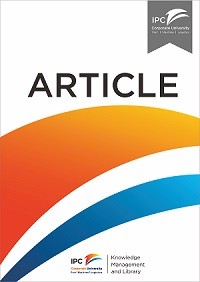Article
Heuristic estimation of container stacking and reshuffling operations under the containership delay factor and mega-ship challenge
This paper addresses a highly researched area, the reshuffling problem in ports, using a newparadigm-modified containership service order in light of credit risk assessment. Container stacking and reshuffling operations can cause ship delays and additional risk. In deep-sea terminals, outbound containers are tightly stacked according to the retrieval sequence. Due to lack of space, terminals stack containers in multiple tiers. This means any delay in the arrival of a ship can impose extra handlings and reshuffling of containers delaying future cargo handling. This paper addresses the reshuffling problem with a concept similar to the credit scoring and rating of creditworthiness used in the banking industry. By utilizing this comparison to the banking credit risk concept, a heuristic estimation model is proposed that illustrates the side effects of unscheduled modifications in containership service order. Further, the mega-ship trend amplifies the reshuffling debate. Probability of delay, reshuffles given delay, and call size at delay are introduced as the three-point risk metrics of the model. Numerical simulations illustrate the functionality to develop terminal stacking strategies as well as emphasize the mega-ship phenomenon and its side effects on terminals (i.e. yard operation deadlock).
Ketersediaan
Informasi Detail
- Judul Seri
-
Maritime Policy & Management The flagship journal of international shipping and port research
- No. Panggil
-
ATC LO GHA g
- Penerbit
- United States of America : routledge taylor france group., 2017
- Deskripsi Fisik
-
20 p.
- Bahasa
-
English
- ISBN/ISSN
-
1464-5254
- Klasifikasi
-
LO
- Tipe Isi
-
-
- Tipe Media
-
-
- Tipe Pembawa
-
online resource
- Edisi
-
VOL. 44, NO. 3, 373–391
- Subjek
- Info Detail Spesifik
-
-
- Pernyataan Tanggungjawab
-
Amir Gharehgozli
Versi lain/terkait
| Judul | Edisi | Bahasa |
|---|---|---|
| Uncertainty, the critical basis of risk management | VOL. 11 NO. 6 2009, pp. 42-55 | en |
| Advanced methods for container stacking | en | |
| Evaluating impact of truck announcements on container stacking efficiency | en |
Lampiran Berkas
Komentar
Anda harus masuk sebelum memberikan komentar

 Karya Umum
Karya Umum  Filsafat
Filsafat  Agama
Agama  Ilmu-ilmu Sosial
Ilmu-ilmu Sosial  Bahasa
Bahasa  Ilmu-ilmu Murni
Ilmu-ilmu Murni  Ilmu-ilmu Terapan
Ilmu-ilmu Terapan  Kesenian, Hiburan, dan Olahraga
Kesenian, Hiburan, dan Olahraga  Kesusastraan
Kesusastraan  Geografi dan Sejarah
Geografi dan Sejarah